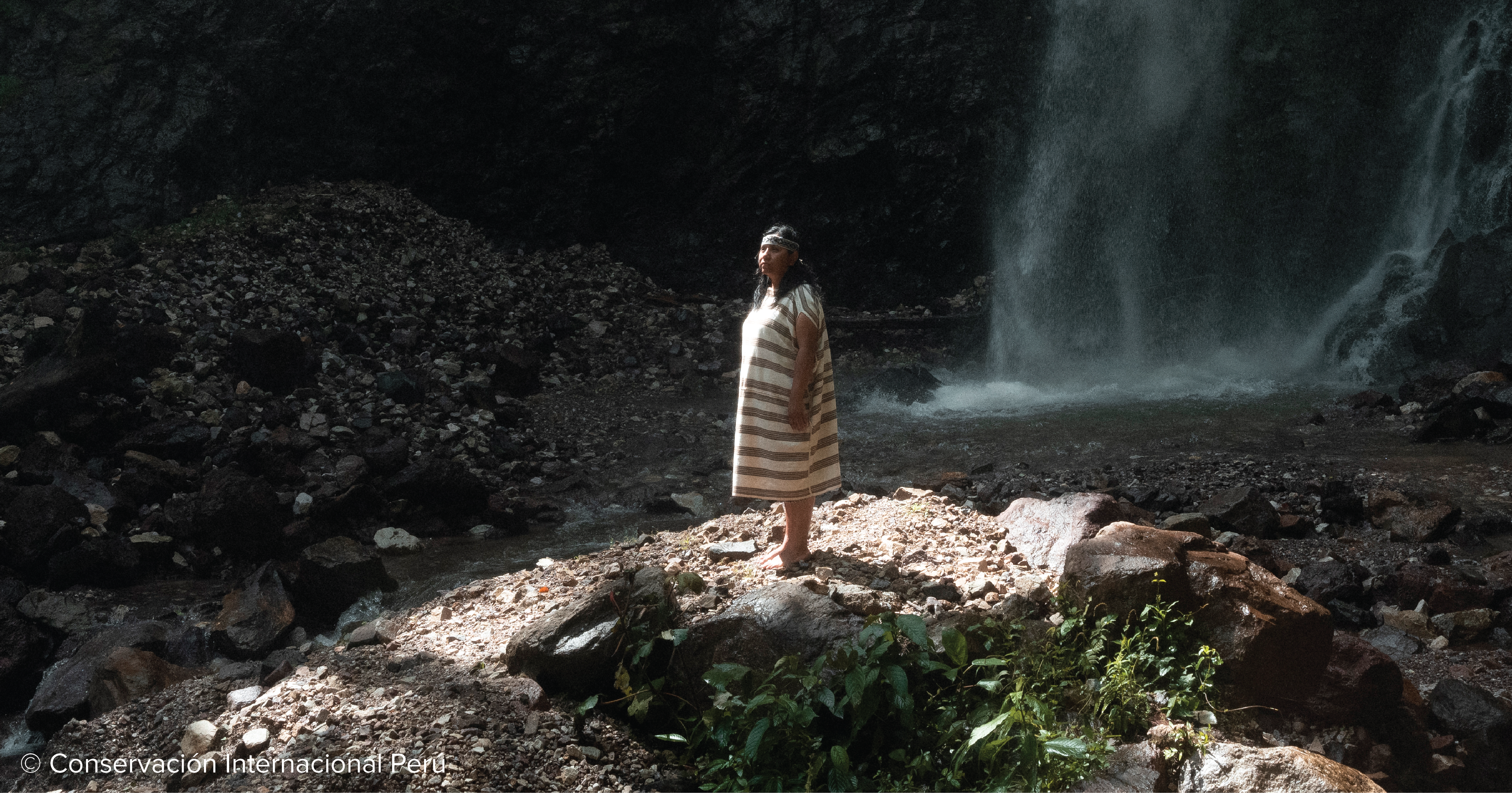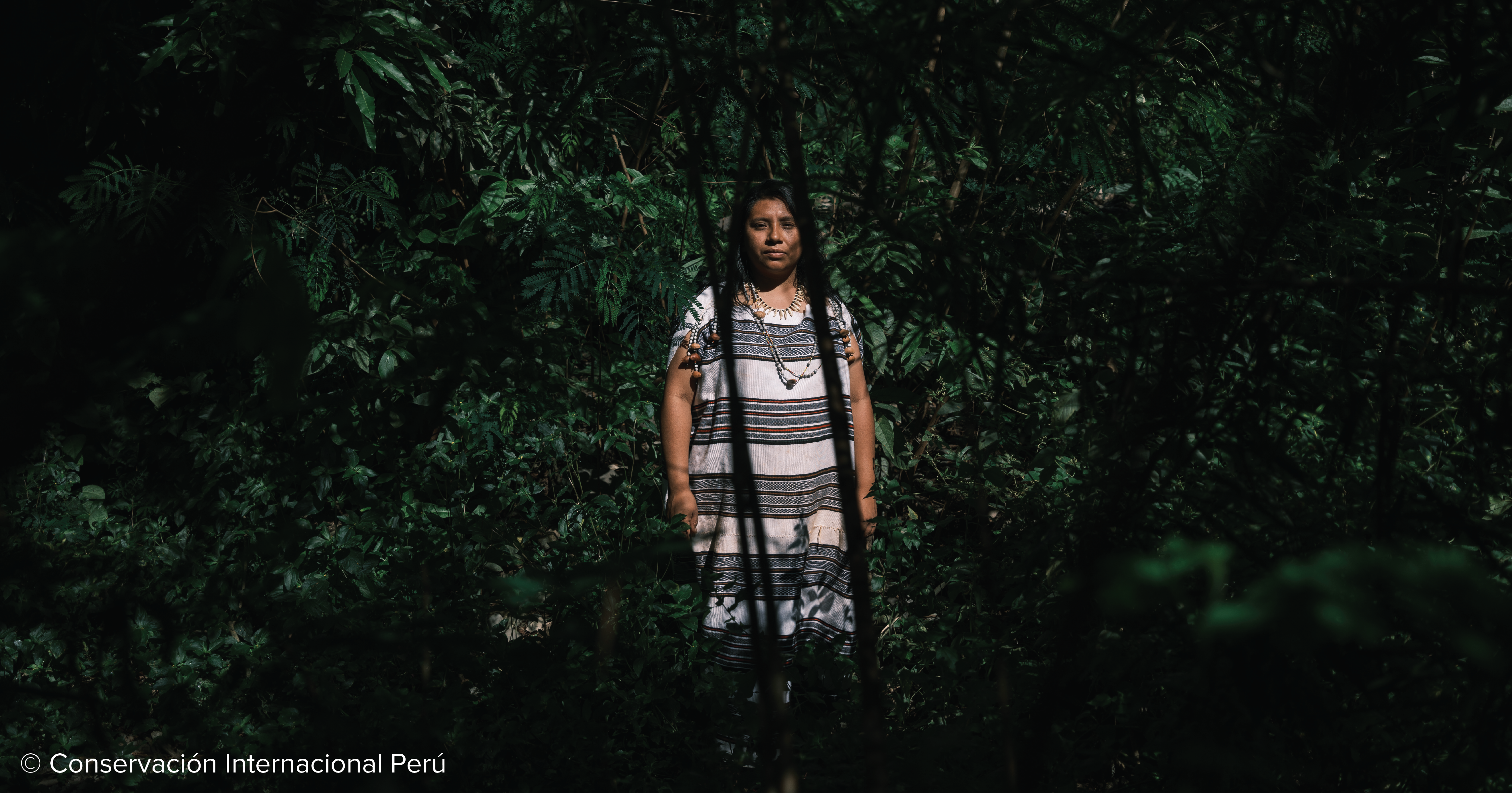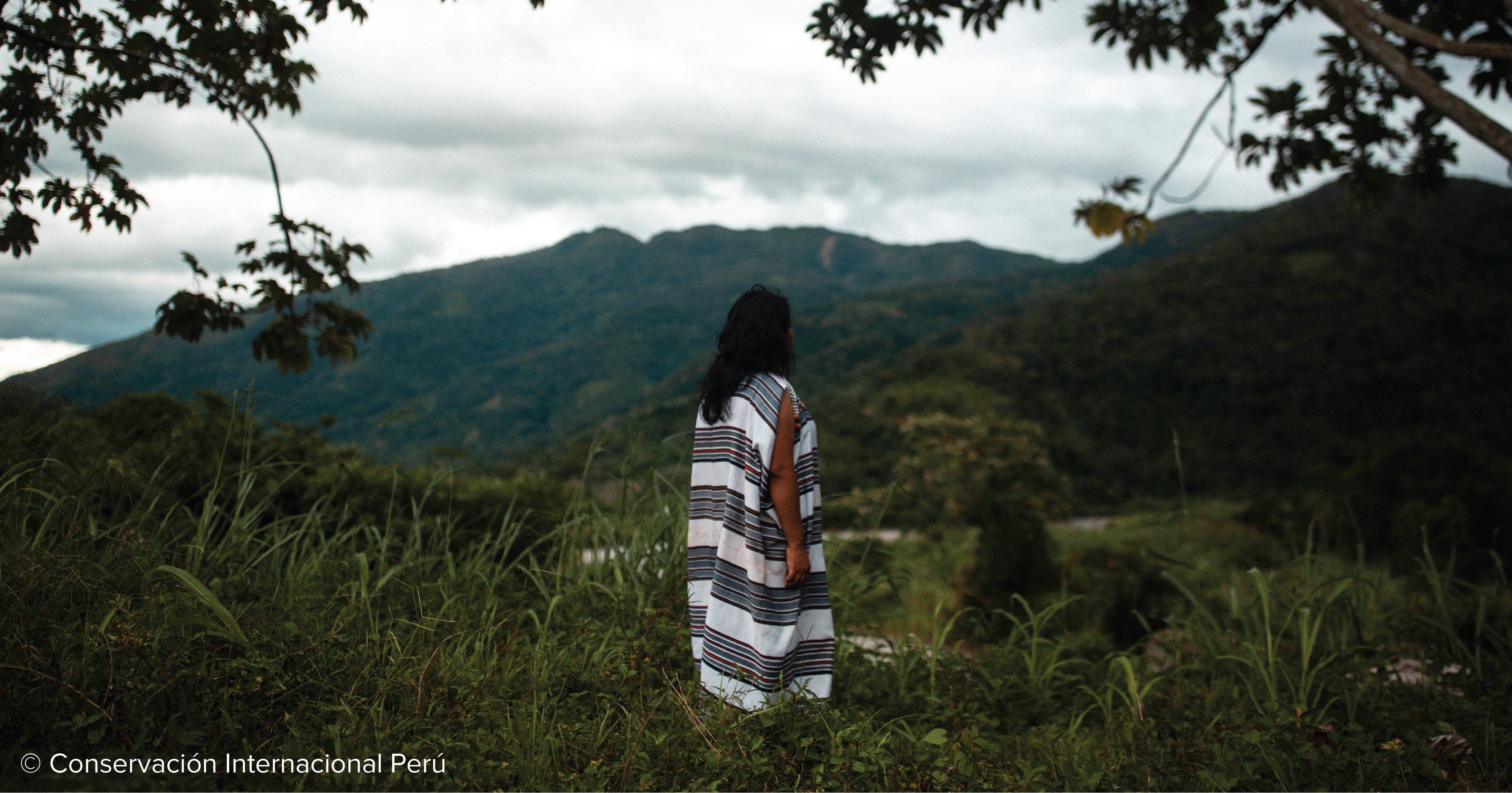Gabriela Loaiza has a bachelor's degree in tropical agronomy and is also a young leader of the largest Machiguenga community in Peru; San José de Koribeni (Cusco), a community where she has served as chief on two occasions and where she has been working to rescue and enhance the value of the traditions of her people and rewrite their own history, which, to date, has only been narrated by the Dominicans who came to evangelize her people and appease the terror of the rubber boom.
In 2021 Gabriela applied to Conservation International's Amazonia Indigenous Women's Fellowship which allowed her to work with the wise men of her community, the elders who treasure the legends, myths and customs of their people and learn about their roots. Through workshops with children, she has worked to teach and highlight these Machiguenga practices and ensure that they are not lost, recording them in a series of stories and songs.
Thanks to the Program, where she developed leadership skills, executed her project and had a support network, Gabriela has regained confidence in these initiatives; “I always thought that there was an organization behind these types of contests and that everything was already planned, but the experience has allowed me to believe in these calls for proposals,” she tells us.

Change agents
Today, Gabriela is an expert. After applying for and receiving this same grant for the second time, she has managed to receive two additional funds that are allowing her to continue her projects and, in addition, to pass the baton of leadership to more women in her community. Her sister, Estefany, will now lead the work of rescuing the endangered Magona potato (Dioscorea spp.), traditionally cultivated by women in the Machiguenga communities.
“The Amazon Indigenous Women's Fellowship has allowed me, first, to grow as a leader, and now, to continue with my professional development by rescuing the plants of my grandparents and ancestors. There are 8 of us women who are working on rescuing not only the crops that used to be grown in our farms, but also the ancestral techniques”, adds Gabriela.
In addition to recovering the magona potato and turning it into flour for sale and local consumption, they are also recovering varieties of cassava seeds and their consumption to generate income for the women and ensure food security for their community.
“It is a very nice experience because I am not only working on the technical and scientific part, discovering for example 17 varieties of cassava, but also learning the techniques of our grandparents, like leaving out the first yuccas to trick the majaz (Cuniculus paca) so that it does not eat the rest of the plantations”, she keeps telling us.

Cultural and biological diversity hand in hand
There are more than 51 indigenous peoples in the Peruvian Amazon, and more than 44 languages are spoken. This immense cultural diversity mirrors the biological, treasuring an unimaginable diversity of plants, roots, insects, reptiles, and mammals that are still being discovered today. Biodiversity is key for the world’s stable future, but it especially so for the peoples that inhabit the Amazon.
These funds to support indigenous women are necessary. Through them we minimize the barriers that exclude them from making decisions that affect the natural resources on which they depend, and because women area powerful agents of change, they move and generate a local economy that reduces the threats of illegal activities that put the forests at risk, as they ensure too that biodiversity is not lost. In other words, they are key to guaranteeing conservation processes. However, this does not mean that it is an easy process.
“All this leadership also presents challenges. I have learned to communicate assertively, and I say the things that need to be improved, but there are people who don't like to listen and I have seen my participation restricted in some spaces because of it,” Gabriela tells us.
But she is confident. She knows that women's leadership must be shared. As a scholarship recipient of the Amazonia Indigenous Women's Fellowship on two occasions, she has become a reference for the future of other women and young people in her community where the Machiguengas struggle with conviction to be able to live proudly and in harmony with nature.

About the Program
Since 2021, 115 grants have been awarded in 7 Amazonian countries, channeling more than US$1.6 million to indigenous women working on a) better management and protection of their territories, b) valuing indigenous knowledge and medicinal plants, c) food sovereignty, d) strengthening their economies, e) reforestation, and f) promoting the leadership of more women within their communities. To date, more than 4,000 people have benefited from this program. You can learn more about how these women are transforming the Amazonia here.